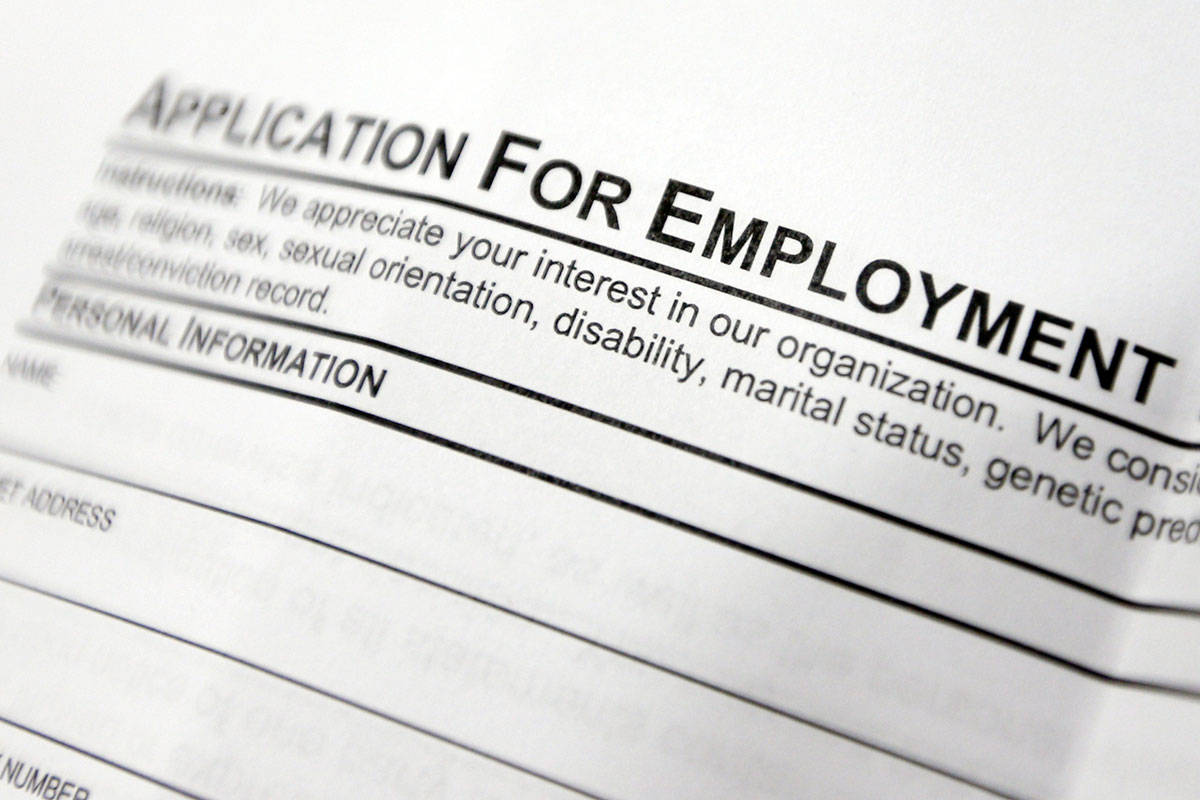Nevada unemployment payments make $14M dent in state fund in 1 week
The Department of Employment, Training and Rehabilitation is chipping away at its unemployment insurance trust fund balance as a record number of Nevadans are out of work because of temporary business closures from the coronavirus.
The fund, used to administer benefits, is at an estimated $1.96 billion for the week ending March 28, down an estimated $14 million from the previous week, according to the department.
The state is still considered to be in a good position for meeting the increased surge of unemployment insurance claims, experts say.
Matt Weidinger of think tank American Enterprise Institute and former deputy staff director of the House Committee on Ways and Means said it’s one of the “better positioned states” but said if the spread of coronavirus continues and the country hits a recession, then states like Nevada could be in trouble.
“This is going to depend on the nature of the recession that we have going,” he said. “Is it going to be a V-shape recession with a lot of people laid off quickly but then the labor market bounces back? The depth of the recession is going to matter, but also the duration of the recession is going to matter to answer this question: Will states’ trust funds be able to withstand the claims that they’re getting hit with?”
‘Funding the fund’
A state is able to borrow money from the federal government if it depletes its trust fund.
Nevada borrowed nearly $800 million during the Great Recession, as the unemployment rate jumped over 14 percent. It took nearly seven years to pay back the debt, which Nevada did in 2017.
Michele Evermore, senior researcher and policy analyst at National Employment Law Project, said that while many states cut benefits and staffing after coming out of the recession, Nevada managed to remain relatively consistent.
“Nevada made the right decisions about how to come out of the last recession, so instead of rushing to cut benefits, Nevada just funded the fund,” she said.
She also said the state’s solvency standard is at 1.52, which means there are enough reserves to manage benefits for a year and a half during a normal recession.
And under the $2 trillion stimulus bill, expanded unemployment benefits for independent contractors, an additional $600 a week for claimants and the 13 additional weeks of benefits for those who have reached the state’s maximum benefits allowance of 26 weeks will all be paid for by federal money once states receive it.
Until then, the state has continued to tap into its trust fund to administer checks to those who are lucky enough to get through the system.
The Department of Employment, Training and Rehabilitation said Friday initial claims totaled 71,942 for the week ending March 28, down 22.1 percent from the previous week’s figure of 92,298.
Nevada has seen 170,596 initial claims filed in the last three weeks — eclipsing the total number of 119,232 initial claims filed in 2019.
Nationally, seasonally adjusted initial claims reached an estimated 6.6 million for the week ending March 28, roughly double the previous week’s claims of 3.3 million.
Continued claims, or those filing each week after having filed a single initial claim, increased a whopping 196 percent from the previous week. Those claims were a total of 58,798 for the week, up from 20,002 continued claims the previous week.
“Continued claims are expected to increase considerably over the coming weeks,” according to a release from DETR.
Contact Subrina Hudson at shudson@reviewjournal.com or 702-383-0340. Follow @SubrinaH on Twitter.











































